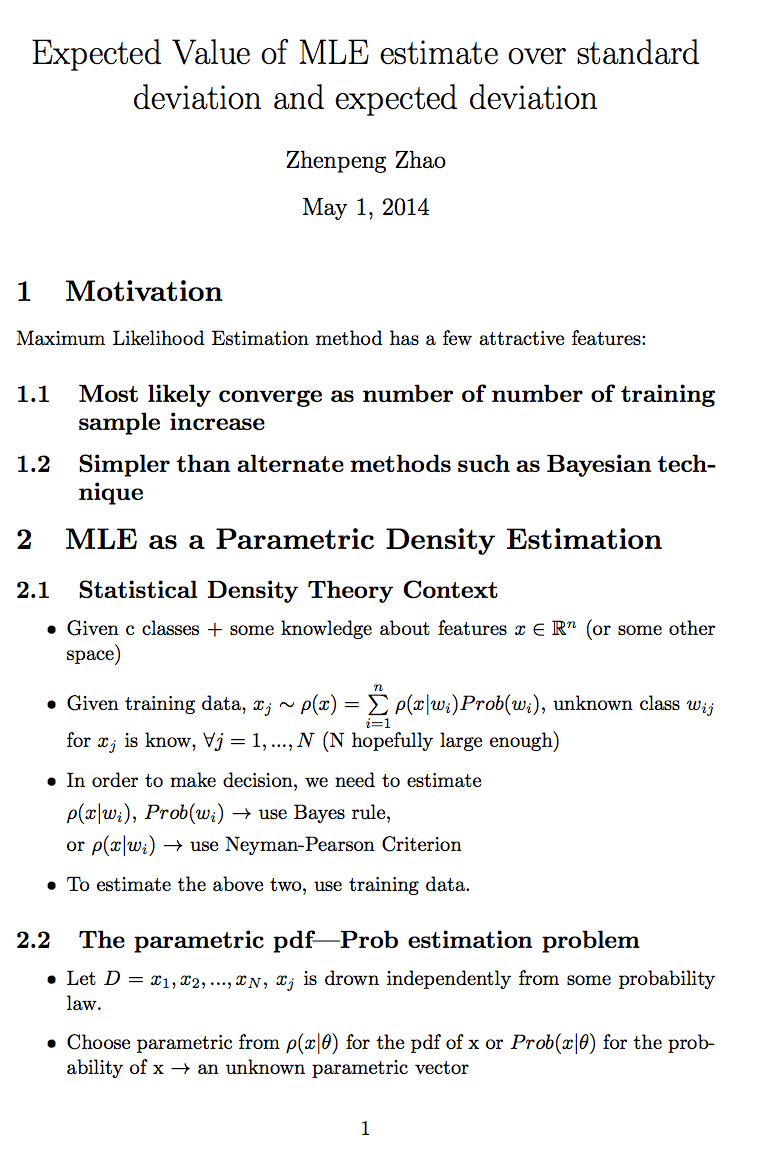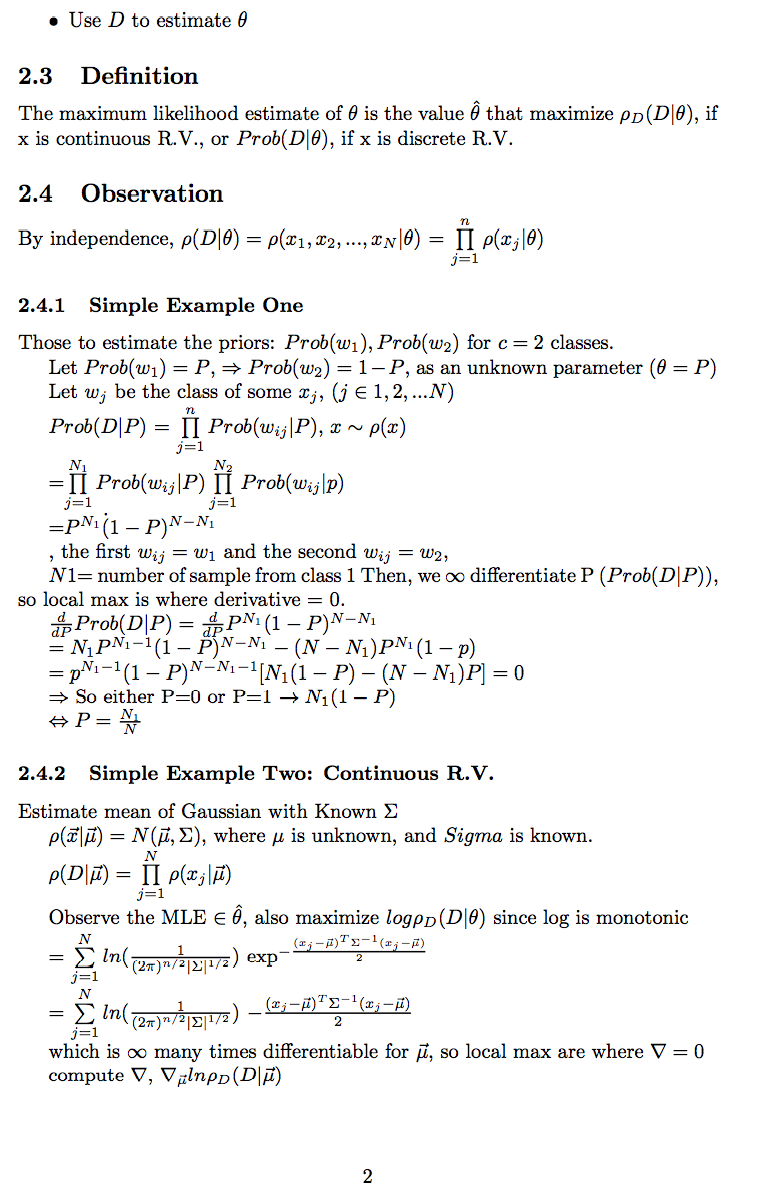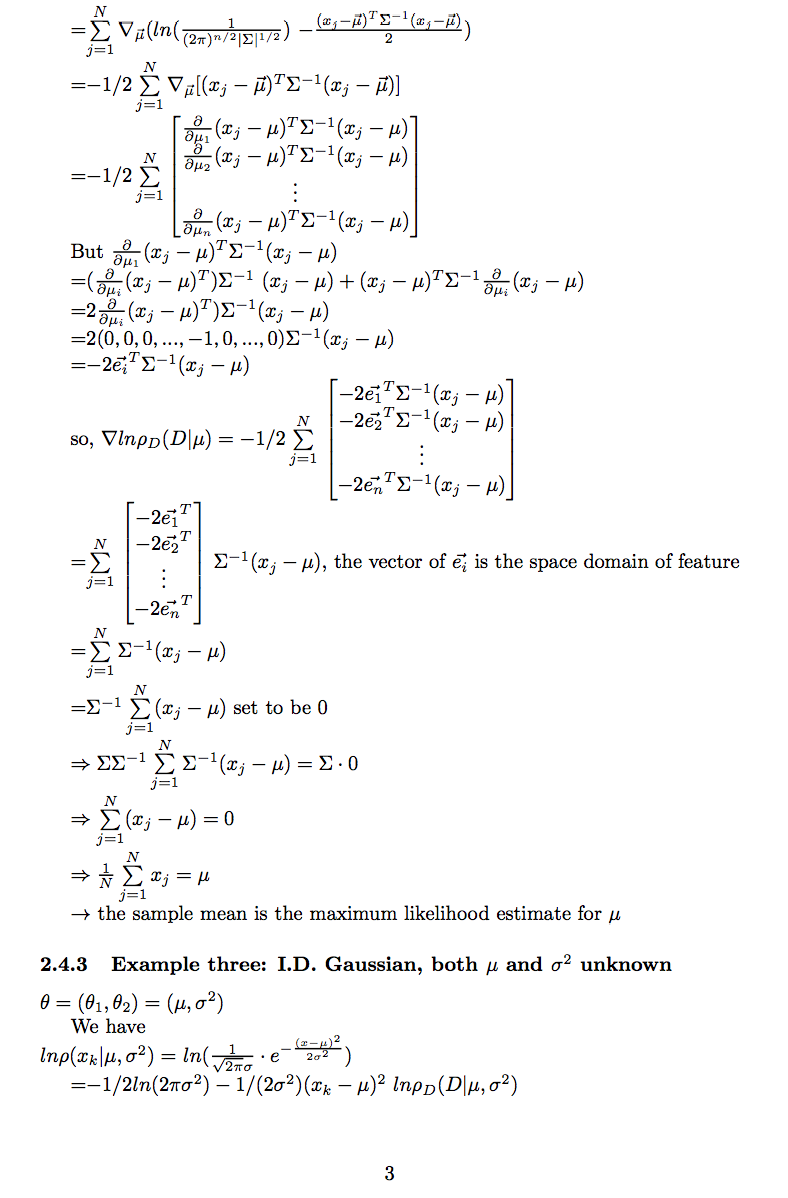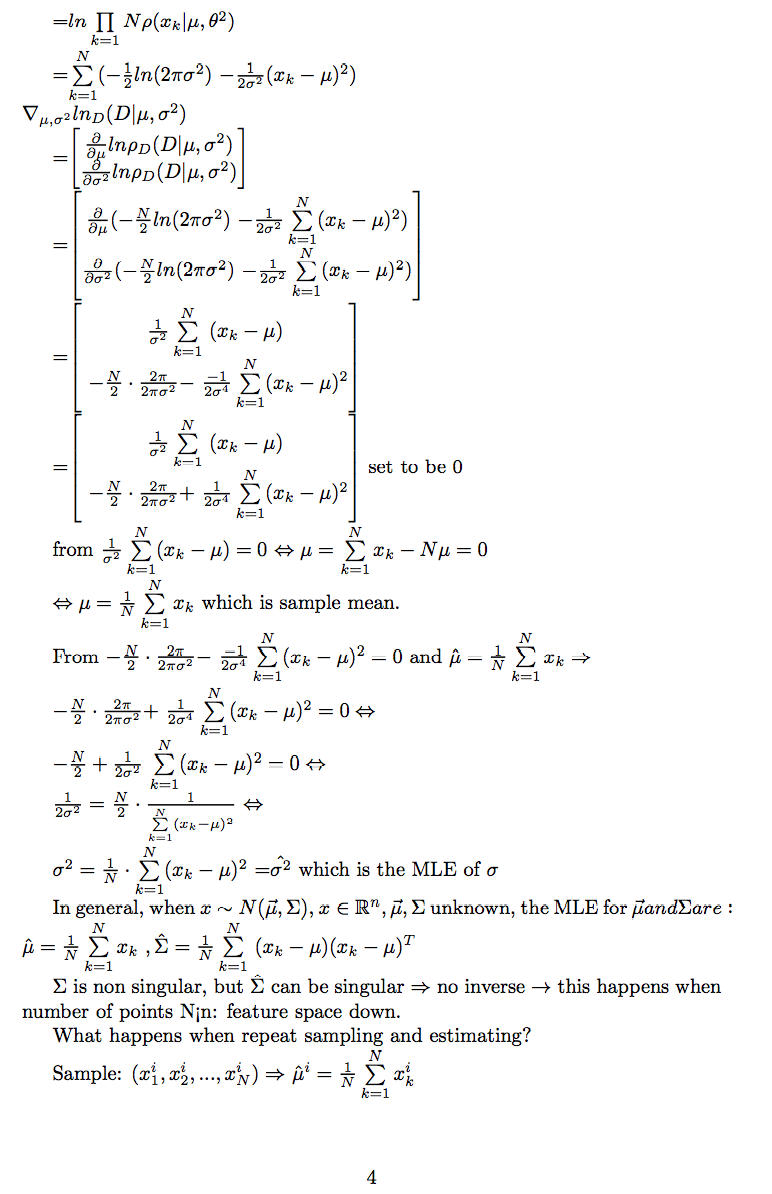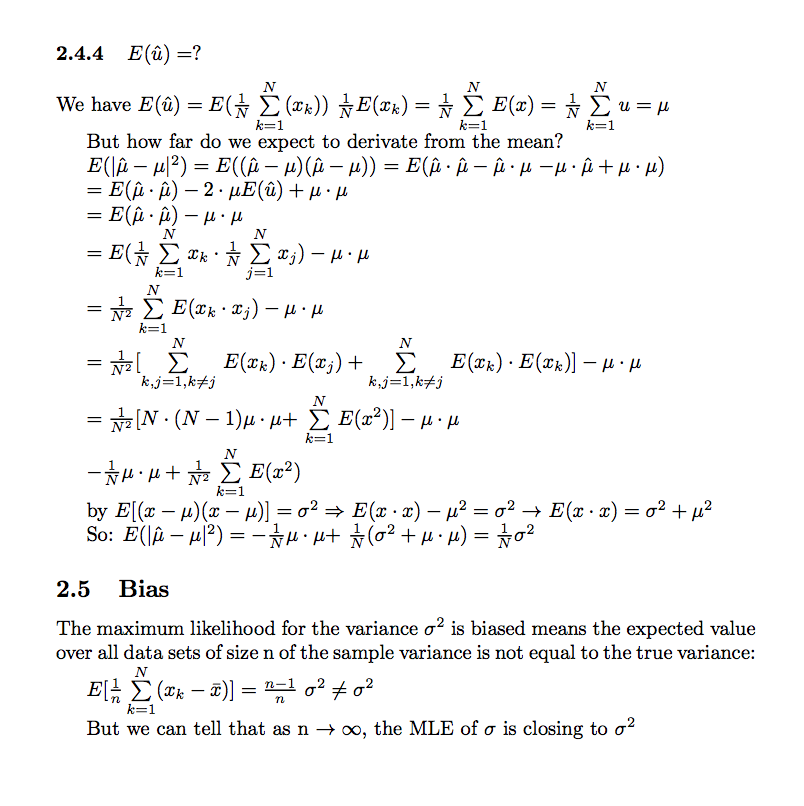| Line 27: | Line 27: | ||
** Let <math>D={x_1,x_2,...,x_N}</math>, <math>x_j</math> is drown independently from some probability law. | ** Let <math>D={x_1,x_2,...,x_N}</math>, <math>x_j</math> is drown independently from some probability law. | ||
** Choose parametric from <math>\rho(x|\theta)</math> for the pdf of x or <math>Prob(x|\theta)</math> for the probability of x <math>\rightarrow</math> an unknown parametric vector | ** Choose parametric from <math>\rho(x|\theta)</math> for the pdf of x or <math>Prob(x|\theta)</math> for the probability of x <math>\rightarrow</math> an unknown parametric vector | ||
| + | **Use <math>D</math> to estimate <math>\theta</math> | ||
| + | |||
| + | *The maximum likelihood estimate of <math>\theta</math> is the value <math>\hat{\theta}</math> that maximize | ||
| + | <math>\rho_D(D|\theta)</math>, if x is continuous R.V., | ||
| + | or <math>Prob(D|\theta)</math>, if x is discrete R.V. | ||
Revision as of 20:15, 5 May 2014
Expected Value of MLE estimate over standard deviation and expected deviation
A slecture by ECE student Zhenpeng Zhao
Partly based on the ECE662 Spring 2014 lecture material of Prof. Mireille Boutin.
1. Motivation
- Most likely converge as number of number of training sample increase.
- Simpler than alternate methods such as Bayesian technique.
2. Motivation
- Statistical Density Theory Context
- Given c classes + some knowledge about features $ x \in \mathbb{R}^n $ (or some other space)
- Given training data, $ x_j\sim\rho(x)=\sum\limits_{i=1}^n\rho(x|w_i) Prob(w_i) $, unknown class $ w_{ij} $ for $ x_j $ is know, $ \forall{j}=1,...,N $ (N hopefully large enough)
- In order to make decision, we need to estimate $ \rho(x|w_i) $, $ Prob(w_i) $ $ \rightarrow $ use Bayes rule, or $ \rho(x|w_i) $ $ \rightarrow $ use Neyman-Pearson Criterion
- To estimate the above two, use training data.
- The parametric pdf|Prob estimation problem
- Let $ D={x_1,x_2,...,x_N} $, $ x_j $ is drown independently from some probability law.
- Choose parametric from $ \rho(x|\theta) $ for the pdf of x or $ Prob(x|\theta) $ for the probability of x $ \rightarrow $ an unknown parametric vector
- Use $ D $ to estimate $ \theta $
- The maximum likelihood estimate of $ \theta $ is the value $ \hat{\theta} $ that maximize
$ \rho_D(D|\theta) $, if x is continuous R.V., or $ Prob(D|\theta) $, if x is discrete R.V.
(create a question page and put a link below)
Questions and comments
If you have any questions, comments, etc. please post them on https://kiwi.ecn.purdue.edu/rhea/index.php/ECE662Selecture_ZHenpengMLE_Ques.

